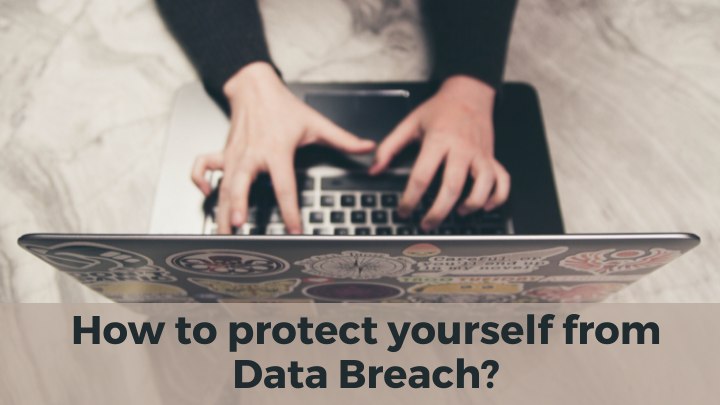
In today’s technology world, data has become an essential thing for corporate giants. ‘Data’ and ‘Information’ are more valued than currency in the current digital world. With ease of life, it has introduced some evil cons also. And the worst part is that you can’t escape from it.
The digital web is all around you and continuously monitoring you including your activites, patterns, behaviours and so on. You need to be careful from all these. While you cannot overcome it, there are specific pointers regarding how to protect yourself from data breach. But, before going ahead, first let’s understand what is all it about. Learn how to protect yourself online.
What is Data Breach?
A data breach occurs when a cyber criminal is able to hack into a computer system to access and steal valuable information about other people. Crimes that might be committed as a result of data theft might include financial fraud and identity fraud. So, as you can imagine, taking steps to protect your personal information is really important.
While you can’t control what businesses do with your information, you can take steps at home to protect yourself against data breaches as much as possible. Continue reading to access a list of these tips that are easy to implement.
1. Protect your Passwords and Accounts
One of the simplest steps you can take to protect yourself from a data breach is to keep your passwords secure. If you write down your passwords, keep them in a secure place where they will be hidden from view. Also, changing your passwords often, while making sure they aren’t easy to guess, can help ensure hackers won’t be able to easily access your accounts.
In addition to all of that, consider using two-factor authentication whenever it is possible to do so. This extra layer of security can protect your account from hackers even if they do manage to figure out your password.
2. Keep your personal information private
There are a lot of ways that your personal information could make it onto the internet. Sometimes, you have nothing to do with it, as is the case with certain public records sources. Even people search sites might be displaying your contact details, and offering background checks on you, to total strangers. So, whenever it is possible to control the information that’s displayed about you online, take the time to remove anything that you don’t want out there.
For example, you can go to Nuwber and opt out of having your personal details displayed on their site. Plus, you can also use that same site to verify the identity of anyone you’ve met online so you can be sure that you are dealing with someone who isn’t a scammer.
In addition to those things that you can’t control, there are things that you can control, such as your social media accounts. Making your profiles private, removing personally identifiable information and details like where you live and work, and only allowing trustworthy people into your network are all smart moves.
3. Install security software
Sometimes, even when you do everything possible to protect yourself from cyber criminals, they still manage to infect your computer with a virus or malware. So, just in case, it is a great idea to look for high-quality security software that you can easily and quickly install on every computer you use.
The right software will help you get rid of threats before they can do any damage, and it can also help you avoid dangerous websites. Combined with your knowledge of common scams, such as phishing scams that you might receive via email, this extra security can help ensure your system will not be vulnerable to attacks.
4. Take a multi-step approach to protect yourself against data breaches
Overall, by being careful about where you share information about yourself, and by taking steps to keep your computers and devices as secure as possible, you can rest assured that you’re doing what you can to avoid becoming the victim of a data breach.
Keep changing your password oftenly. It is also advisable to change the pattern of your password. Such systematic approach makes hard to hack into it. One more thing – never use any public wifi. It includes wifi of popular hangout places also. Such places are the best for hackers to get your data.
